Globalization’s 21st Century Makeover explains how “emerging” market companies are rapidly becoming global players—to whit, new owners for Jaguar and Land Rover.
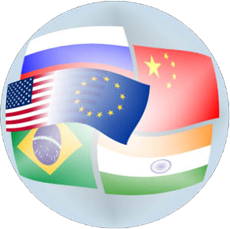 Emerging countries have long been regarded by globalizers as targets for exploitation, but 21st century market forces are turning legacy thinking on its head, which produces disruption and its sibling, opportunity. Emerging countries have long been regarded by globalizers as targets for exploitation, but 21st century market forces are turning legacy thinking on its head, which produces disruption and its sibling, opportunity.
The conventional thinking goes that emerging countries like Brazil, Russia, India and China (BRIC) have talented knowledge/human capital resources that can be tapped in outsourcing and offshoring arrangements. Moreover, these workers’ employment in high value knowledge jobs creates a new consumer class among large populations. Emerging countries’ rapidly growing consumer markets stand in sharp contrast to developed countries’, which are flat or shrinking. China and India have been relaxing restrictions on foreign ownership, which has increased FDI, especially in China, enabling foreign companies to invest in and buy BRIC companies.
However, the big story in 2007 was the opposite:
[…]
Disrupting the Automobile explores how several ventures are changing the rules of an intractable industry.

The automobile is a personal manifestation of the ultimate promise of the Industrial Economy—that physical power is essentially free—because it enables people to move quickly and easily. People just love cars because it is immensely satisfying to glide effortlessly (traffic notwithstanding ,^) from one place to another with a high degree of individual freedom.
However, as 2007 draws to a close, autos’ current reliance on fossil fuels makes it increasingly obvious that we need to change the rules. First, new wealth in emerging markets is dramatically increasing auto ownership and its concomitant demand for oil. Increased demand and uncertain supply will undoubtedly prove unsustainable in the medium term. Second, and even more daunting, is the carbon/climate change problem, which is far more life-changing in the long term. Petroleum and coal are the largest contributors to man-made carbon emissions.
[…]
Mashing up Edison and Weinberger wires together two thinkers that usually exist in different worlds, and reveals key facets of Knowledge Economy disruption.

By the way, Noodles represent a new kind of post, bits of thought that are unstructured and relatively brief. Many won’t even be split into “extended” articles. They are partially inspired by twitter.
Yesterday I heard David Weinberger (one of the Cluetrain authors; his new book is Everything is Miscellaneous) talk at Big Frontier, and the big insight I took away doesn’t sound like much but, peel the onion, and it’s quite profound. Knowledge is inherently social. We vet our thoughts by sharing them with other people. Interaction helps us to refine thoughts and coalesce them into knowledge by knocking off the rough edges, and we co-design knowledge by collaborating.
[…]
Will China’s Rise Lead to an Environmental Catastrophe? summarizes The Economist Chicago debate, examining the environmental fallout of the Chinese economic supernova—sibling rivalry rears its ugly head.
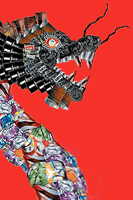 In 2007, nary an RSS feed or the page of a newspaper (for those still inclined ,^) does not mention China’s exploding impact on the global stage: China is truly an economic supernova, and it is breaking almost any record for development that is laid before it. However, China’s breakneck development is accompanied by grave environmental fallout: for example, as the host of the Beijing 2008 Olympic Games, the city is designing extreme measures to ensure that the air is clean enough for the athletes to breathe. The chief culprit is coal, a key source for China’s insatiable need for electric power, and a resource that the country has in abundance. For key facts on China, I suggest The Economist’s Country Briefing or CSRA’s Emerging Markets category (in depth) or China tag (mentions). In 2007, nary an RSS feed or the page of a newspaper (for those still inclined ,^) does not mention China’s exploding impact on the global stage: China is truly an economic supernova, and it is breaking almost any record for development that is laid before it. However, China’s breakneck development is accompanied by grave environmental fallout: for example, as the host of the Beijing 2008 Olympic Games, the city is designing extreme measures to ensure that the air is clean enough for the athletes to breathe. The chief culprit is coal, a key source for China’s insatiable need for electric power, and a resource that the country has in abundance. For key facts on China, I suggest The Economist’s Country Briefing or CSRA’s Emerging Markets category (in depth) or China tag (mentions).
The Economist and WBEZ 91.5 FM presented an Oxford-style debate on the effect that China’s rise […]
Leadership, Trust and the Globally Integrated Enterprise reports on IBM’s CEO as he articulated a prescient vision for the enterprise—adapting to the Knowledge Economy.
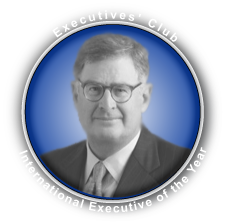 Samuel J. Palmisano, Chairman, President and Chief Executive Officer of IBM Corporation, outlined a new version of the enterprise at a lunch honoring him with the Executives’ Club of Chicago’s Thirteenth Annual International Executive of the Year Award April 12, 2007 at the Chicago Hilton. Entitled “Leadership, Trust and the Globally Integrated Enterprise,” his speech emphasized key points from his Summer 2006 article of the same name in Foreign Affairs. He was especially interesting to hear due to his experience with leading one of the world’s foremost global enterprises as well as his insight from serving global enterprises in every industry. Samuel J. Palmisano, Chairman, President and Chief Executive Officer of IBM Corporation, outlined a new version of the enterprise at a lunch honoring him with the Executives’ Club of Chicago’s Thirteenth Annual International Executive of the Year Award April 12, 2007 at the Chicago Hilton. Entitled “Leadership, Trust and the Globally Integrated Enterprise,” his speech emphasized key points from his Summer 2006 article of the same name in Foreign Affairs. He was especially interesting to hear due to his experience with leading one of the world’s foremost global enterprises as well as his insight from serving global enterprises in every industry.
Yesterday’s model for the global enterprise, the multinational corporation (MNC), looks increasingly outdated due to widespread adoption of standards-based technology, increasingly standardized work processes and a liberalizing regulatory environment. Today, knowledge-based resources are available globally, and the enterprise’s means to create value is choosing how and where to tap the resources to […]
Visions for Technology Leadership
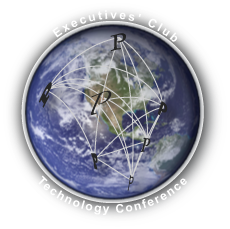 After Gary Forsee’s luncheon address, a diverse panel of executives took the stage to discuss global technology leadership. Hardik Bhatt, CIO of the City of Chicago, Steve Goldman, Director of Architecture, the Chicago Mercantile Exchange, Raymond Spencer, CEO of Kanbay International, and David Weick, Global CIO of McDonald’s, shared their visions for Chicago’s global role in the world. Janet Kennedy, Midwest General Manager of Microsoft, gracefully moderated the panel discussion. The Executives’ Club of Chicago’s quarterly Technology Conference took place March 8 at the Chicago Hilton. After Gary Forsee’s luncheon address, a diverse panel of executives took the stage to discuss global technology leadership. Hardik Bhatt, CIO of the City of Chicago, Steve Goldman, Director of Architecture, the Chicago Mercantile Exchange, Raymond Spencer, CEO of Kanbay International, and David Weick, Global CIO of McDonald’s, shared their visions for Chicago’s global role in the world. Janet Kennedy, Midwest General Manager of Microsoft, gracefully moderated the panel discussion. The Executives’ Club of Chicago’s quarterly Technology Conference took place March 8 at the Chicago Hilton.
“Getting global” can mean many things, and panelists hit the issue from many directions. I’ll venture that, more than anything, it means changing one’s mindset, focus and approach, all of which are difficult to measure. All panelists represented organizations that had had international operations for decades, so how is global different?
[…]
We Must Rethink Learning in the Knowledge Economy
 Academicians everywhere are struggling to improve their students’ competitive standings in the global Knowledge Economy, which levels the playing field in many respects. It is far easier to build a world-class competitor in the Knowledge Economy than it was in the Industrial Economy. A strong educational system is a must, along with a highly motivated population, decent infrastructure and incentives for foreign investment. In former times, being a world competitor necessitated gaining control of vast natural resources to produce a strong industrial base from which world-class armies and navies would be built. India currently exemplifies the Knowledge Economy model very well*, and countries worldwide have taken note. Academicians everywhere are struggling to improve their students’ competitive standings in the global Knowledge Economy, which levels the playing field in many respects. It is far easier to build a world-class competitor in the Knowledge Economy than it was in the Industrial Economy. A strong educational system is a must, along with a highly motivated population, decent infrastructure and incentives for foreign investment. In former times, being a world competitor necessitated gaining control of vast natural resources to produce a strong industrial base from which world-class armies and navies would be built. India currently exemplifies the Knowledge Economy model very well*, and countries worldwide have taken note.
However, the Knowledge Economy is drastically changing what people need to learn to succeed, and educators haven’t caught up yet. They are teaching according to Industrial Economy rules, which compromises the performance of their students.
Educators have a special opportunity to create competitive advantage by realizing that the learning proposition is far different today—due to the Knowledge Economy and the role of information in adding value. The speed […]
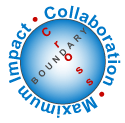 Two recent articles show that even the most intractable problems can be overcome when organizations find ways to align their goals. Sometimes collaboration makes for strange bedfellows—like the military and environmentalists—but opportunity is often highest when when “mashing up” groups that are not used to working together. Innovation can produce surprising value when leaders open their minds, challenge conventional wisdom and make unthinkable changes—like paying a hospital more for treating patients less. Two recent articles show that even the most intractable problems can be overcome when organizations find ways to align their goals. Sometimes collaboration makes for strange bedfellows—like the military and environmentalists—but opportunity is often highest when when “mashing up” groups that are not used to working together. Innovation can produce surprising value when leaders open their minds, challenge conventional wisdom and make unthinkable changes—like paying a hospital more for treating patients less.
These stories are as inspiring as they are instructive because the people involved questioned assumptions, and I hope you enjoy them.
Healthcare Costs Hit in Solar Plexus
Virginia Mason Medical Center is Seattle’s third largest health care provider, and it began innovating in several areas after receiving a wake-up call from Aetna, one of the area’s largest insurers. In 2004, Aetna shared the results of a study that compared treatment costs of Seattle area hospitals. Several of Virginia Mason’s specialty practices were significantly more costly than alternatives, and Aetna was considering excluding those areas from coverage. In the ensuing two years, Virginia Mason innovated by using new workflow strategies in targeted treatment areas. For example:
In the spine clinic, […]
Economic Outlook for 2007 Reveals Pockets of Opportunity + Political Handicapping
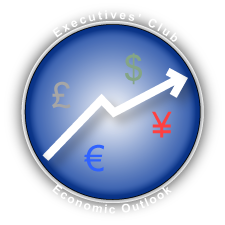 The Executives’ Club of Chicago assembled an all-star panel to give Midwest business leaders their guidance for various aspects of the U.S. economy in 2007. Diane Swonk, Chief Economist of Mesirow Financial, Alan Murray, Assistant Managing Editor of The Wall Street Journal and Robert “Bob” Froehlich, Chairman of the Investment Strategy Committee, Deutsche Asset Management broke out their respective crystal balls for 2007, and the audience was not disappointed for lack of insight or wit. The session was scintillatingly moderated by Terry Savage, Financial Columnist of the Chicago Sun-Times. The Executives’ Club of Chicago assembled an all-star panel to give Midwest business leaders their guidance for various aspects of the U.S. economy in 2007. Diane Swonk, Chief Economist of Mesirow Financial, Alan Murray, Assistant Managing Editor of The Wall Street Journal and Robert “Bob” Froehlich, Chairman of the Investment Strategy Committee, Deutsche Asset Management broke out their respective crystal balls for 2007, and the audience was not disappointed for lack of insight or wit. The session was scintillatingly moderated by Terry Savage, Financial Columnist of the Chicago Sun-Times.
The consensus was that the U.S. economy would have a relatively benign year in 2007. All panelists predicted a higher Dow, and their predictions concurred with Wall Street’s most accurate ,^) indicator, the Super Bowl Predictor. Little of import will happen on the political front, the U.S. economy will grow at a slower pace, and investment returns will be generally highest outside the U.S. Elsewhere, consumer empowerment reared its head in the executive pay issue, […]
China Analysis and Outlook 2007 offers political insight into the global knowledge market.
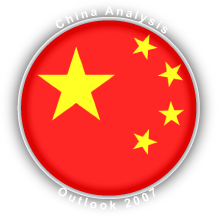 The Strategic Management Association, the Harvard Business School and the CDMA sponsored the 2007 China Outlook, which was given by Lyric Hughes-Hale, Founder China Online in Chicago 9 January 2007. Her presentation was preceded by David Hale’s 2007 Economic Forecast. The Strategic Management Association, the Harvard Business School and the CDMA sponsored the 2007 China Outlook, which was given by Lyric Hughes-Hale, Founder China Online in Chicago 9 January 2007. Her presentation was preceded by David Hale’s 2007 Economic Forecast.
As a long-time China watcher and analyst, Lyric has rare and unusual insights to which I’ll try to do justice before giving my observations. The Global Human Capital Journal also covered the 2006 China Outlook.
[…]
|
|
 Emerging countries have long been regarded by globalizers as targets for exploitation, but 21st century market forces are turning legacy thinking on its head, which produces disruption and its sibling, opportunity.
Emerging countries have long been regarded by globalizers as targets for exploitation, but 21st century market forces are turning legacy thinking on its head, which produces disruption and its sibling, opportunity.

 In 2007, nary an RSS feed or the page of a newspaper (for those still inclined ,^) does not mention China’s exploding impact on the global stage: China is truly an economic supernova, and it is breaking almost any record for development that is laid before it. However, China’s breakneck development is accompanied by grave environmental fallout: for example, as the host of the Beijing 2008 Olympic Games, the city is designing extreme measures to ensure that the air is clean enough for the athletes to breathe. The chief culprit is coal, a key source for China’s insatiable need for electric power, and a resource that the country has in abundance. For key facts on China, I suggest The Economist’s Country Briefing or CSRA’s Emerging Markets category (in depth) or China tag (mentions).
In 2007, nary an RSS feed or the page of a newspaper (for those still inclined ,^) does not mention China’s exploding impact on the global stage: China is truly an economic supernova, and it is breaking almost any record for development that is laid before it. However, China’s breakneck development is accompanied by grave environmental fallout: for example, as the host of the Beijing 2008 Olympic Games, the city is designing extreme measures to ensure that the air is clean enough for the athletes to breathe. The chief culprit is coal, a key source for China’s insatiable need for electric power, and a resource that the country has in abundance. For key facts on China, I suggest The Economist’s Country Briefing or CSRA’s Emerging Markets category (in depth) or China tag (mentions). Samuel J. Palmisano, Chairman, President and Chief Executive Officer of IBM Corporation, outlined a new version of the enterprise at a lunch honoring him with the Executives’ Club of Chicago’s Thirteenth Annual International Executive of the Year Award April 12, 2007 at the Chicago Hilton. Entitled “Leadership, Trust and the Globally Integrated Enterprise,” his speech emphasized key points from his Summer 2006 article of the same name in Foreign Affairs. He was especially interesting to hear due to his experience with leading one of the world’s foremost global enterprises as well as his insight from serving global enterprises in every industry.
Samuel J. Palmisano, Chairman, President and Chief Executive Officer of IBM Corporation, outlined a new version of the enterprise at a lunch honoring him with the Executives’ Club of Chicago’s Thirteenth Annual International Executive of the Year Award April 12, 2007 at the Chicago Hilton. Entitled “Leadership, Trust and the Globally Integrated Enterprise,” his speech emphasized key points from his Summer 2006 article of the same name in Foreign Affairs. He was especially interesting to hear due to his experience with leading one of the world’s foremost global enterprises as well as his insight from serving global enterprises in every industry. After Gary Forsee’s luncheon address, a diverse panel of executives took the stage to discuss global technology leadership. Hardik Bhatt, CIO of the City of Chicago, Steve Goldman, Director of Architecture, the Chicago Mercantile Exchange, Raymond Spencer, CEO of Kanbay International, and David Weick, Global CIO of McDonald’s, shared their visions for Chicago’s global role in the world. Janet Kennedy, Midwest General Manager of Microsoft, gracefully moderated the panel discussion. The Executives’ Club of Chicago’s quarterly Technology Conference took place March 8 at the Chicago Hilton.
After Gary Forsee’s luncheon address, a diverse panel of executives took the stage to discuss global technology leadership. Hardik Bhatt, CIO of the City of Chicago, Steve Goldman, Director of Architecture, the Chicago Mercantile Exchange, Raymond Spencer, CEO of Kanbay International, and David Weick, Global CIO of McDonald’s, shared their visions for Chicago’s global role in the world. Janet Kennedy, Midwest General Manager of Microsoft, gracefully moderated the panel discussion. The Executives’ Club of Chicago’s quarterly Technology Conference took place March 8 at the Chicago Hilton. Academicians everywhere are struggling to improve their students’ competitive standings in the global Knowledge Economy, which levels the playing field in many respects. It is far easier to build a world-class competitor in the Knowledge Economy than it was in the Industrial Economy. A strong educational system is a must, along with a highly motivated population, decent infrastructure and incentives for foreign investment. In former times, being a world competitor necessitated gaining control of vast natural resources to produce a strong industrial base from which world-class armies and navies would be built. India currently exemplifies the Knowledge Economy model very well*, and countries worldwide have taken note.
Academicians everywhere are struggling to improve their students’ competitive standings in the global Knowledge Economy, which levels the playing field in many respects. It is far easier to build a world-class competitor in the Knowledge Economy than it was in the Industrial Economy. A strong educational system is a must, along with a highly motivated population, decent infrastructure and incentives for foreign investment. In former times, being a world competitor necessitated gaining control of vast natural resources to produce a strong industrial base from which world-class armies and navies would be built. India currently exemplifies the Knowledge Economy model very well*, and countries worldwide have taken note. Two recent articles show that even the most intractable problems can be overcome when organizations find ways to align their goals. Sometimes collaboration makes for strange bedfellows—like the military and environmentalists—but opportunity is often highest when when “mashing up” groups that are not used to working together. Innovation can produce surprising value when leaders open their minds, challenge conventional wisdom and make unthinkable changes—like paying a hospital more for treating patients less.
Two recent articles show that even the most intractable problems can be overcome when organizations find ways to align their goals. Sometimes collaboration makes for strange bedfellows—like the military and environmentalists—but opportunity is often highest when when “mashing up” groups that are not used to working together. Innovation can produce surprising value when leaders open their minds, challenge conventional wisdom and make unthinkable changes—like paying a hospital more for treating patients less. The Executives’ Club of Chicago assembled an all-star panel to give Midwest business leaders their guidance for various aspects of the U.S. economy in 2007. Diane Swonk, Chief Economist of Mesirow Financial, Alan Murray, Assistant Managing Editor of The Wall Street Journal and Robert “Bob” Froehlich, Chairman of the Investment Strategy Committee, Deutsche Asset Management broke out their respective crystal balls for 2007, and the audience was not disappointed for lack of insight or wit. The session was scintillatingly moderated by Terry Savage, Financial Columnist of the Chicago Sun-Times.
The Executives’ Club of Chicago assembled an all-star panel to give Midwest business leaders their guidance for various aspects of the U.S. economy in 2007. Diane Swonk, Chief Economist of Mesirow Financial, Alan Murray, Assistant Managing Editor of The Wall Street Journal and Robert “Bob” Froehlich, Chairman of the Investment Strategy Committee, Deutsche Asset Management broke out their respective crystal balls for 2007, and the audience was not disappointed for lack of insight or wit. The session was scintillatingly moderated by Terry Savage, Financial Columnist of the Chicago Sun-Times. The Strategic Management Association, the Harvard Business School and the CDMA sponsored the 2007 China Outlook, which was given by Lyric Hughes-Hale, Founder China Online in Chicago 9 January 2007. Her presentation was preceded by David Hale’s 2007 Economic Forecast.
The Strategic Management Association, the Harvard Business School and the CDMA sponsored the 2007 China Outlook, which was given by Lyric Hughes-Hale, Founder China Online in Chicago 9 January 2007. Her presentation was preceded by David Hale’s 2007 Economic Forecast.